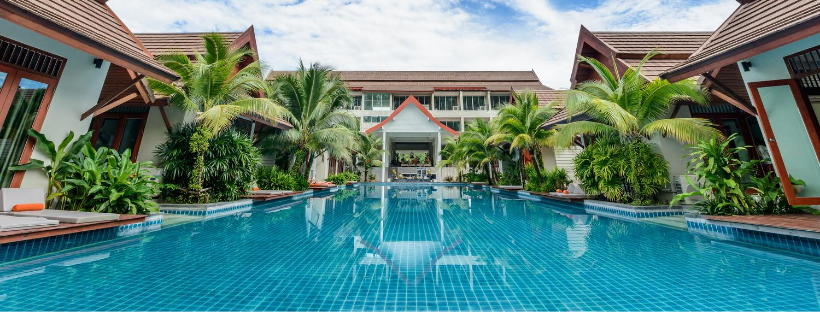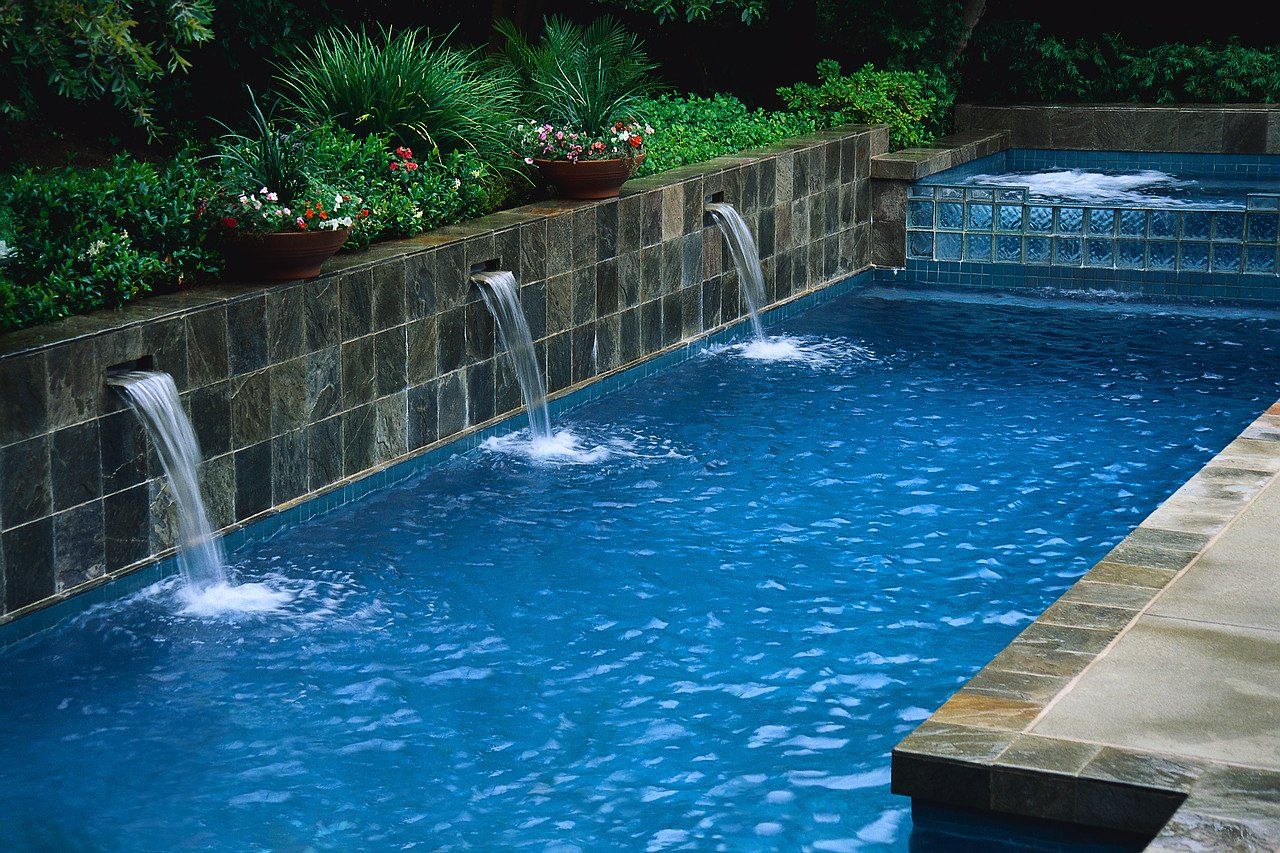SALT WATER POOL VS CHLORINE POOL
The Costs, Differences, Maintenance and Health
Saltwater or chlorine pool? Confused which one to choose? Are you trying to differentiate the two? If so, I can tell you that you are not alone. These are important questions that many pool owners keep asking all the time. When you compare both pools – saltwater pool and
chlorine pool – you will notice some key differences. And while they are both excellent choices, when you understand each better, their pros and cons, you are able to make the right decision. This article covers everything you want to know about both pools, enabling you to make an informed decision on the one you would want.
Disclaimer: in the article, we use the term “chlorine pool” a lot. What we would like you to remember is that both ‘chlorine pool” and saltwater pool use chlorine, with the only difference being the ingredients and form. We use the terms so as to keep things simple and easy when explaining the two.
The main difference between a saltwater pool and a chlorine pool
While both chlorine and saltwater pools use chlorine, how this chlorine is produced is where the difference lies. Regular chlorine pools use pre-made chlorine which in the form of tablets, powder, or liquid. Typically, this form of chlorine is the most concentrated and it contains a lot of added ingredients in it. On the other hand, a saltwater pool creates its own chlorine. In these pools, there are systems known as the saltwater chlorine generator cell, which sanitizes your pool water by processing the salt, electrically, into chlorine. This chlorine is the same you would apply in the chlorine pool, but now in a gentler and mild form, chemically, which is why you will find that the water in the saltwater pool feels soft.
Saltwater vs chlorine pool: Costs
This is the other major difference between the two. See, the initial cost of setting up a saltwater pool is way higher than that of chlorine pools, but after the initial setup, maintaining them is cheaper. The reason for this is the fact that saltwater pools require a special type of equipment known as a saltwater generator, a machine that processes salt, turning it to usable chlorine. Below are the main costs of running a saltwater swimming pool system:
- Saltwater generator - $400-$3000 (the power center should be replaced after every 5-10 years)
- Saltwater generator cell - $200-$800 (lasts for 2-6 years)
- Salt bags - $3-$6 for every 5-pound bag.
- Majority pools need 400-1000 pounds while setting up, meaning its $50-$125.
- Annual costs (after setup) ranges $70-$100.
- The average cost per year for saltwater pools is $85.
For chlorine pools, they are cheaper to set up, but the per-year cost of sanitizing is way higher than that of saltwater pools. The reason being, store-bought chlorine costs 3 - 8 times more than salt. The salt used on saltwater pools costs $70-$120 per year, while the chemical chlorine used on chlorine pools costs $300-$800. What this means is that, even when you include the added cost of the saltwater generator, these pools are still way cheaper than the chlorine pools.
Saltwater pools vs chlorine pools: Maintenance
When it comes to maintenance of both pools, it is pretty much the same; there isn’t that much of a difference. For instance, whichever pool you have, you still have to:
- Clean the filters
- Skim, vacuum, and brush
- Ensure that all the chemicals are balanced (pH, alkalinity, calcium hardness, etc)
- Service the pool heater
- Sweep the deck
- Empty skimmer and pump baskets
- Cover the pool
However, there are a few differences;
In saltwater pools, depending on the saltwater generator you are using, you can set it to regulate the chlorine levels by itself. Most system models offer this feature though.
What’s more, saltwater pool systems allow you to adjust the production rate of chlorine, using the control panel, making it easier for you to manage chemical use in the pool. One potential drawback for these pools is the fluctuation of the pH levels, which happens for two reasons:
First,
the chlorine generated by salt is not stable as it burns up during a sunny day, making it fluctuate more. So, you will need to add a CYA stabilizer to your pool so as to boost the effectiveness of chlorine.
Second,
the level of salt in the pool water impacts the generator in that too much salt leads to inaccurate chlorine readings and can also corrosion, while too little may force the generator to shut down.
Saltwater pool vs chlorine pool: Health
The biggest difference between chlorine pools and saltwater pools is in the way the water feels. The chlorine from the saltwater pool is less concentrated than the bottled chlorine applied on chlorine pools, making it gentler and less irritant to the skin.
And while both forms of chlorine sanitize the water effectively, chlorine from saltwater pools feels lighter and softer, and it’s a lot safer on clothes as it doesn’t fade colours away, the way chemical chlorine does.
On the other hand, chemical chlorine leads to dry itchy skin, and to some people, it may trigger some respiratory problems. The reason being, the chlorine contains more ingredients that are harmful to the skin and are more concentrated.
Something many people ask themselves regards saltwater pool stopping red eyes. Now, the thing is, both chlorine pools and saltwater pools can cause red eyes. It is because of the imbalance of chlorine levels and the chloramines in the water. The chloramines, which are the sanitized contaminants, cause the most irritation, meaning that if the water is dirty, your eyes will turn red.
To avoid this, whether yours is chlorine or saltwater pool, you need to ensure that the chlorine levels are balanced.
The other thing is the storage of chlorine. See, when it comes to saltwater pools, you don’t need that much of a space as you will only be storing a few salt bags. Salt is non-toxic and doesn’t need special storage. All you need is to keep it dry.
On the other hand, chemical chlorine is toxic and can bring foul odors if it’s not stored properly, especially if you live in a hot and humid environment. To avoid this, just follow the instructions given by the manufacturer when storing it.
Ensure that all chlorine chemicals are stored in a vented area and that they are tightly sealed at all times.





